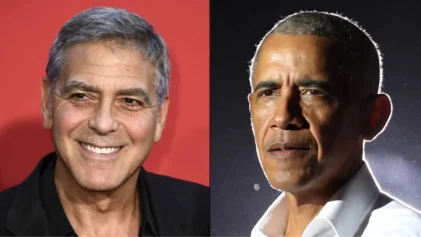Republican presidential hopeful Mitt Romney criticized President Barack Obama during a Sunday evening television broadcast for his refusal to meet with Israeli Prime Minister Benjamin Netanyahu in what could be a harbinger of things to come during next month’s presidential debates.
Obama and Netanyahu have had a rocky relationship from the outset, but things have soured even further as of late following the outspoken Israeli leader’s decision to publicly criticize the administration for its handling of Iran. President Obama said his schedule was tied up and did not personally meet with Netanyahu when he was in New York last week to attend United Nations General Assembly meetings.
Romney wasted no time in saying that the omission sent the message that the administration is distancing itself from an important Middle East ally.
“I think the exact opposite approach is what’s necessary,” Romney told CBS’ “60 Minutes.”
Obama, spoke in a separate interview on the same program on CBS, saying he spoke frequently with Netanyahu and described Israel as “one of our closest allies in the region.”
The president also challenged Romney, who has accused him of not standing up forcefully enough to Syria and Iran, to be more specific about his foreign policy plans.
“So if Governor Romney is suggesting that we should start another war,” Obama said, “he should say so.”
The back-and-forth from the two presidential contenders was a likely preview of the tone and substance of the first of their three face-to-face debates, which will be held in Denver on Oct. 3.
Romney tried to undo some of the damage from his remarks to a group of wealthy donors that were recorded in May and released last week, in which he said that 47 percent of the American people paid no income taxes, were dependent on government and would never vote for him. Republican critics have called for a campaign shake-up in the wake of the furor over the remarks and other issues.
Romney rebutted the criticism, saying that he was essentially tied with Obama and in no need of a campaign turnaround.
“That’s not the campaign,” he said of the contentious remarks. “That was me, right?”
He added: “I’ve got a very effective campaign. It’s doing a very good job. But not everything I say is elegant.”
Romney said he would consider means-testing for Social Security benefits for future retirees, and he put some distance between his plans for reshaping Medicare as a voluntary voucher program and the proposal by his running mate, Representative Paul Ryan, to reduce payments to the health care program by some $700 billion.
“Yeah, he was going to use that money to reduce the budget deficit,” Romney said of Ryan. “I’m putting it back into Medicare, and I’m the guy running for president, not him.”
Obama took a fairly combative tone in his interview, defending the administration’s actions on financial bailouts, health care legislation and efforts to help homeowners and job seekers.
He said he regretted that he had failed in a central promise of his 2008 campaign to change the tone of Washington.
Romney was on a plane to Colorado later Sunday evening when he said that he welcomed the chance the debates would offer to correct “inaccurate” portrayals in Obama campaign ads of his positions on the auto bailout, taxes and abortion.


